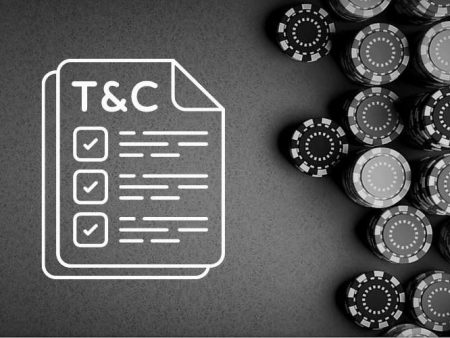
What's on this page
The United Kingdom Gambling Commission (UKGC) introduced a ban on the use of credit cards for all forms of gambling in April 2020. This significant regulatory change was aimed at addressing the rising concerns about gambling-related harms and ensuring a safer gambling environment for UK residents. The decision has generated substantial debate, with various stakeholders expressing differing views on its impact and effectiveness. This article delves into the reasons behind the ban, its implications, and the ongoing discussions surrounding it.
Is Credit Card Gambling Truly Harmful?
Credit card gambling has been identified as a potentially harmful practice due to several reasons:
- Financial Risk: Using credit cards for gambling can lead to significant financial losses. Unlike debit cards, which withdraw funds directly from the user’s bank account, credit cards enable gambling with borrowed money. This can lead to debt accumulation and severe financial distress.
- Behavioural Impact: The availability of credit can exacerbate problem gambling behaviours. Players may continue to gamble even after exhausting their funds, leading to a cycle of debt and gambling.
- Psychological Effects: Gambling with credit cards can obscure the perception of spending. When individuals do not see an immediate reduction in their bank balance, they may underestimate their gambling expenditure, fostering irresponsible gambling habits.
Research has shown a correlation between credit card use and problem gambling. A study by the UKGC indicated that a significant proportion of problem gamblers were using credit cards. This association underscored the necessity for regulatory intervention to mitigate gambling-related harms.
How Does the Ban Protect Players?
The UKGC’s decision to ban credit card use for gambling is grounded in its commitment to safeguarding players. The ban serves multiple protective functions:
- Debt Prevention: By prohibiting credit card transactions, the UKGC aims to prevent individuals from gambling with money they do not have, thereby reducing the risk of debt accumulation and financial hardship.
- Encouraging Responsible Gambling: The ban promotes the use of safer payment methods, such as debit cards and e-wallets linked to bank accounts. This ensures that players gamble with their available funds, enhancing their financial control and promoting responsible gambling practices.
- Immediate Financial Awareness: Without the option of using credit, gamblers are more likely to be immediately aware of their spending. This immediate feedback loop can help in maintaining better control over gambling expenditures and discourage excessive gambling.
- Support for Problem Gamblers: The ban is part of a broader strategy to support problem gamblers. By limiting access to high-risk payment methods, the UKGC aims to create a safer gambling environment and reduce gambling-related harms.
These measures reflect a proactive approach to gambling regulation, prioritising player protection and financial well-being over commercial interests.
Key Factors Influencing the UKGC’s Decision
Several key factors influenced the UKGC’s decision to implement the credit card ban:
- Rising Problem Gambling Rates: Statistics indicated a concerning increase in problem gambling rates in the UK. The UKGC identified credit card gambling as a significant contributing factor, necessitating regulatory action.
- Public and Stakeholder Input: The UKGC conducted extensive consultations with the public, gambling operators, and financial institutions. Feedback from these consultations highlighted widespread support for the ban as a measure to protect vulnerable individuals.
- Evidence-Based Approach: The decision was grounded in research and evidence. Studies demonstrated the link between credit card use and gambling-related harms, providing a robust basis for regulatory intervention.
- Alignment with Broader Regulatory Goals: The ban aligns with the UKGC’s broader objectives of promoting a fair and safe gambling environment. It is part of a suite of measures aimed at enhancing consumer protection and reducing gambling-related risks.
- International Precedents: The UKGC also considered international precedents, noting that similar measures had been implemented in other jurisdictions with positive outcomes. This provided a model for the UK to follow in its efforts to mitigate gambling harms.
These factors collectively shaped the UKGC’s decision, reflecting a balanced approach to regulation that prioritises player protection and responsible gambling.
Criticisms and Potential Ramifications of the Ban
Despite its intended benefits, the credit card ban has attracted criticism and raised concerns about its potential ramifications:
- Impact on Gambling Operators: The ban is likely to affect gambling operators’ revenues, particularly those heavily reliant on credit card transactions. This could lead to economic challenges for smaller operators and job losses in the industry.
- Consumer Inconvenience: Some consumers have expressed frustration with the ban, citing the convenience of credit card payments and the potential difficulties in transitioning to alternative payment methods.
- Shift to Unregulated Markets: Critics argue that the ban might drive some gamblers towards unregulated or illegal gambling sites that do not adhere to UK regulations. This could expose players to greater risks, including fraud and lack of consumer protections.
- Ineffectiveness for Problem Gamblers: There is a concern that the ban might not effectively address problem gambling. Problem gamblers may find alternative means of accessing funds, such as loans or overdrafts, thus circumventing the intended protective measures.
- Impact on Credit Providers: The ban affects credit card companies and financial institutions, which may experience a decline in transaction volumes. This has implications for their business models and revenue streams.
Despite these criticisms, the UKGC maintains that the benefits of the ban in terms of player protection and harm reduction outweigh the potential drawbacks.
Credit Providers Advocate for Responsible Gambling
In response to the ban, credit providers have taken steps to advocate for responsible gambling and support their customers:
- Promoting Financial Education: Credit card companies have increased efforts to educate customers about responsible gambling and the risks associated with using credit for gambling purposes.
- Enhanced Monitoring and Support: Some providers have introduced enhanced monitoring systems to identify and support customers exhibiting signs of problem gambling. This includes offering tools and resources for financial management and debt support.
- Collaborations with Regulators: Credit providers have engaged in collaborations with regulators and gambling operators to develop integrated solutions for responsible gambling. This includes sharing data and best practices to enhance consumer protection.
- Alternative Payment Solutions: Financial institutions have developed alternative payment solutions that promote responsible gambling. These include prepaid cards and other payment methods that limit the amount of money that can be spent on gambling.
- Support for Research and Initiatives: Many credit providers have pledged support for research into gambling-related harms and initiatives aimed at promoting responsible gambling. This includes funding for research projects and partnerships with organisations dedicated to gambling harm reduction.
These initiatives reflect a broader commitment within the financial sector to promote responsible gambling and mitigate the risks associated with credit card use for gambling.
Conclusion
The UKGC’s ban on credit card use for gambling represents a significant step in the ongoing efforts to create a safer gambling environment in the UK. While the ban has its critics and poses challenges for various stakeholders, its primary aim is to protect players from the financial and psychological harms associated with credit card gambling. The decision reflects a careful consideration of evidence, stakeholder input, and broader regulatory goals.
As the gambling landscape continues to evolve, it is essential for regulators, gambling operators, and financial institutions to work collaboratively to promote responsible gambling and support those affected by gambling-related harms. The credit card ban is a crucial component of this multifaceted approach, highlighting the importance of proactive regulation in safeguarding public welfare.
By understanding the reasons behind the ban and its potential implications, stakeholders can better navigate the complexities of the gambling industry and contribute to a safer, more responsible gambling environment in the UK.





